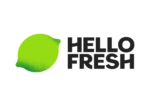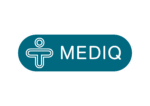
Global agriculture company achieves multi-tier visibility with Sedex
A leading global agricultural company, operating across multiple continents, needed stronger ethical sourcing controls. High-risk regions with labour vulnerabilities demanded deeper due diligence and transparency beyond Tier 1.
The Challenge
Traditional audits lacked consistency and comparability across diverse operations. Without multi-tier visibility, the company faced reputational risk, potential non-compliance, and limited ability to identify and remediate labour exploitation. Inconsistent audit data created reporting inefficiencies and weakened risk management at scale.
The organisation aimed to move beyond basic compliance and build a robust ethical sourcing framework that met stakeholder expectations while supporting sustainable agricultural practices across its global network.
The Solution
The company adopted an integrated Sedex strategy, embedding requirements into core processes rather than piecemeal fixes.
- Centralised data management: Sedex membership consolidated social and environmental supplier data across business units, creating a single source of truth and removing silos.
- Standardised assessment framework: SAQs across Tier 1 and beyond gathered worker, governance, and environmental information for consistent risk evaluation.
- Enhanced audit programme: Suppliers undertook SMETA four-pillar assessments covering labour, health and safety, environment, and business ethics, improving comparability and quality assurance.
- Risk prioritisation: The pre-assessment tool highlighted high-risk regions and guided due diligence for data-driven allocation of resources.
- Cross-business unit coordination: Shared Sedex audit data streamlined remediation and supplier engagement, reducing duplication and improving responses.
- Contractual integration: Sedex compliance became a baseline for onboarding and ongoing sourcing relationships.
- Strategic differentiator: Participation in Sedex was mandatory. Audits, SAQs, and CAPs were built into sourcing policy, and insights from the pre-assessment tool were combined with internal sustainability metrics, including carbon, biodiversity, and poverty indicators, for holistic risk management.
The Results
Enhanced supply chain visibility
- Expanded coverage through SMETA four-pillar audits, capturing risk data across labour, health and safety, environment, and business ethics.
- Increased audit and SAQ participation by onboarding suppliers to the central Sedex platform.
- Built consistent, comparable datasets that cut duplication and improved reporting quality and decision-making.
Strengthened risk management
- Better identification, monitoring, and remediation of risks in regions with migrant worker vulnerabilities through systematic data collection and analysis.
- Extended transparency beyond Tier 1, laying foundations for mapping complex agricultural supply chains.
- Stronger compliance with modern slavery regulations and international buyer expectations through demonstrated due diligence.
Strategic business value
- Recognition for leadership in ethical sourcing, complementing wider sustainability achievements and enhancing brand reputation.
- Greater credibility against global modern slavery legislation via Sedex-backed public transparency disclosures.
- Ethical trade oversight integrated into board-level sustainability governance for systematic attention to responsible sourcing.
Operational excellence
- Streamlined remediation and supplier engagement through shared audit data across business units.
- Reduced administrative burden through standardised processes and centralised data.
- Stronger ability to evidence ethical sourcing leadership to international buyers and regulators.
“This approach shows how mandatory integration of ethical trade standards can transform transparency. By combining Sedex requirements with internal sustainability metrics, the company built a holistic risk management framework that meets multiple stakeholder expectations.”
What made the difference
Ethical sourcing was treated as a core business requirement. Making participation in Sedex mandatory set clear expectations while providing the tools and support for compliance.
Integration was key. Requirements were embedded in sourcing policy, contract terms, and board-level oversight, so ethical sourcing became foundational, not an add-on. Using the pre-assessment tool alongside internal metrics gave a comprehensive view of risk beyond labour compliance, enabling sharper prioritisation and resource allocation.
A commitment to transparency, through public disclosures backed by Sedex data, built stakeholder trust, reinforced internal accountability, and provided external validation.
For agricultural companies with complex global supply chains, high-risk regions, and mounting regulation, systematic integration of ethical trade standards can deliver both compliance and competitive advantage. Treat ethical sourcing as a strategic capability, with mandatory participation ensuring full coverage across supplier relationships.
Ready to transform your agricultural supply chain transparency?
Contact Sedex to see how our integrated platform builds comprehensive ethical sourcing capabilities across complex global operations.
Contact our team today to request a demo tailored to your industry.


